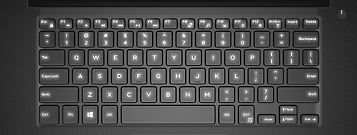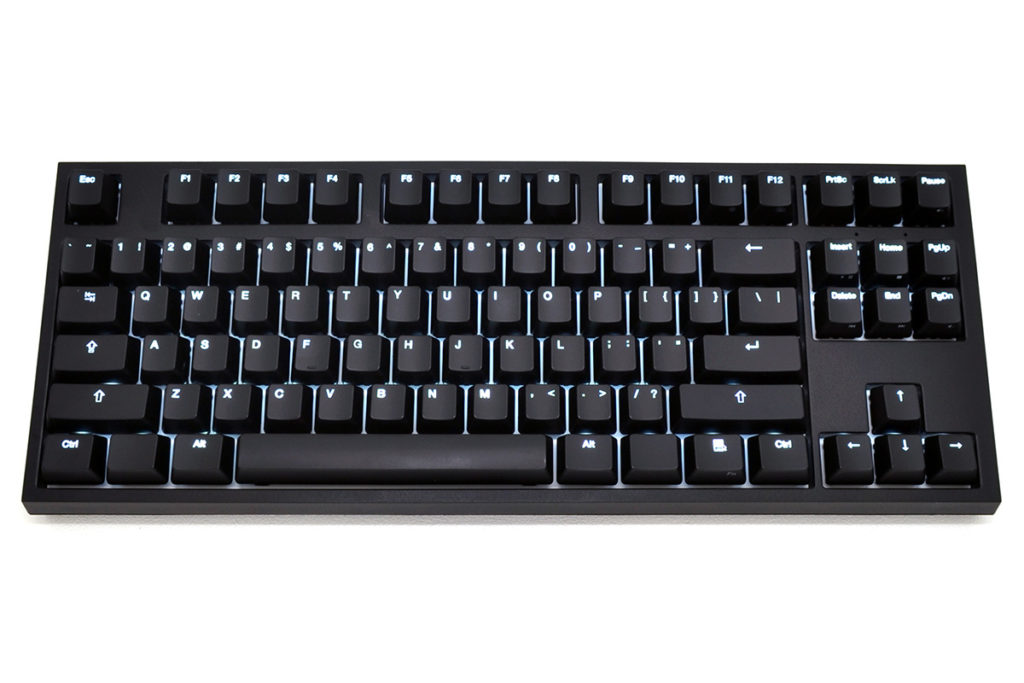I never learned to type correctly.
If you were to watch me type, it would look like someone who learned to type with five fingers while frantically trying to type in the answer to an online trivia gaming board before anyone else was able to.
Oh, did I give myself away?
Perhaps because of this, I also hit my keyboard keys hard. Like really hard. I always feel a little like Beethoven when I type.
But I love the tactile sense of a keyboard. I love the feel of the buttons, the resistance of them as they press down, and the satisfying click (or, let’s face it, mush) of a key pressed.
Granted, I don’t like laptop keyboards these days, all of whom are trying to mimic the form-over-function of low-travel distance keys that Apple has unleashed on everything. (Seriously, who thought that putting spaces in between keys was ever a good idea for anything aside from look?)

But while I’ve been eyeing CODE keyboards with their mechanical switches recently (anyone have any thoughts on the different types of Cherry MX switches?) I really should stop bitching about this sort of thing at all.
Because I should be grateful that I have physical buttons to press in the first place.

The Button Free Life
A smartphone, like tablets and similar devices, has no buttons.
Oh sure, there used to be a home button, and maybe some buttons on the side, but at this point, those are all gone, in favor of a full touchscreen experience.
I can totally understand the appeal of touchscreens, in that they replace hardware with software, so that instead of a fixed array of buttons, you can make any part of the screen interactive.
As a software developer, I would totally be into that.
But as a user, I find it really tough to warm to.
Why?
Why I miss buttons
First of all, there’s no tactile response on a screen. I have to look at the screen to see if I’ve made proper contact with the exact portion of screen I intended to touch. This visual feedback loop is slow and laborious, and nothing like the speed that actually touching a button would tell you.
The visual interrupt is important here too. With buttons, you could interact with a device without looking at it if you wanted to. (I may suck at touch typing, but I can text mostly eyes-free at this point.) This frees up your eyes to do other things, like interact with your universe.
Also, mashing a glass screen hurts my fingers.
I imagine that there are those in the industry who realize the touchscreen’s limitations. This seems to have pushed the industry more into the voice-recognition space. Which is classic Silicon Valley (“we’ve created a problem, and now we’re going to fix it with another problem“). And nothing says invasion of privacy like a tech company that listens to everything you say.
I’m making a gesture right now
When something is hard to do, people will do it less. And a screen is easiest for dragging and pointing. Which is great if you’re doing ingestion (passive watching and reading), but isn’t so good if you want to interact. And wasn’t that the point of the internet at one point, to better connect?
Maybe the purpose of a smartphone is to make us better consumers, more passive consumers of information.
That seems a little too conspiratorial for me. But think about it the next time you interact with a device.
I want to know what I’m pressing. I am want to feel the response. The sound of buttons being pressed is my Ode To Joy.

